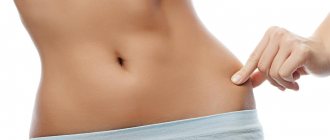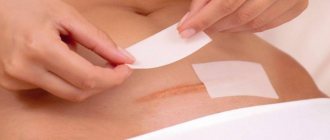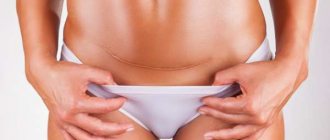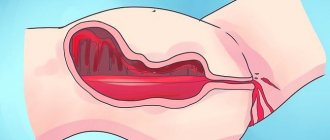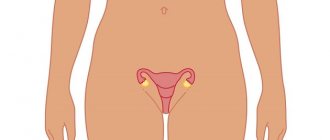Different approaches to managing symptoms
Treatment of hemorrhoids during breastfeeding will be effective only in an integrated approach.
Experts suggest treating in several ways at once: medications, ointments, suppositories, enemas. In addition, the use of methods such as diet, traditional medicine, gymnastics will help - only active actions can cure hemorrhoids in a nursing mother. How to properly treat a disease during lactation? One of the reasons for the exacerbation of hemorrhoid symptoms in mothers is constipation. If they are not eliminated and the digestion process is not adjusted during the postpartum period, then it is impossible to escape from hemorrhoids. In order to gain relief, you need to switch to dietary nutrition. Experts recommend:
- remove unhealthy foods (spicy, fatty, salty) and foods that can cause gas (cabbage) from your diet;
- introduce foods rich in fiber into your diet (oatmeal, apples);
- Use kefir as often as possible, as it has a laxative effect.
We treat infections
Now let’s return to the situation of inattention to the healing of microcracks. The consequence of this in the postpartum period, with weakened immunity and fatigue of the woman, may be inflammatory processes. Even the course of labor itself can cause the development of genital candidiasis. If there were favorable conditions for the development of this disease, then it will make itself felt very quickly. You can't miss thrush. Its signs: itching, cheesy white vaginal discharge, painful urination. If these symptoms are detected, then you cannot delay the visit to the doctor, because you can infect your baby with candidiasis. In the acute form of the disease, particles of the fungus can circulate in the blood. Getting into various tissues and organs, with mother's milk, they can pass into the child's body. In such cases, the woman is prescribed harmless pimafucin. It is non-toxic and effective. Pimafucin or nystatin in the form of vaginal suppositories goes well with medications. Using suppositories will help get rid of thrush quite quickly.
Candles are great for healing wounds
Depantol suppositories have restorative and anti-inflammatory properties. The main active ingredients are chlorhexidine bigluconate and dexpanthenol.
Chlorhexidine bigluconate is an antiseptic substance that perfectly neutralizes many bacteria, dermatophytes, yeasts and the herpes virus. It is important that this substance actively works even when there is bloody or purulent discharge. And dexpanthenol enhances regeneration processes, increases the density of collagen fibers and normalizes cellular metabolism.
As a rule, the drug is prescribed during the treatment of cervical erosion, acute and chronic forms of vaginitis, endocervicitis and exocervicitis. It is also often used to treat the vaginal mucosa after childbirth or gynecological operations.
Many women who have given birth two or more times note that Depantol perfectly heals ruptures in just a few days. They draw this conclusion due to the fact that after the first birth without the use of these suppositories, the wounds healed for more than a month, and after the second birth with the use of this drug, the ruptures healed in almost a week, and the women returned to a full life. They could walk, sit and shower normally.
In some cases, gynecologists do not prescribe this drug immediately after childbirth, but after one and a half to two months, when the woman begins to have a sexual life and feels pain and burning during sex. At a doctor’s appointment, it turns out that after childbirth the mucous membrane has become hypersensitive, but there are no tears or cracks. In such cases, Depantol suppositories are also prescribed, which heal the affected areas.
Sometimes the recovery period after childbirth involves medication. Vaginal suppositories can be used to physically restore the body. They are usually recommended for women who have suffered ruptures during childbirth, but there are cases when they are needed to relieve the inflammatory process.
It is clear that not all women experience ruptures during childbirth, but the majority receive microcracks in the vagina and it is very important that they heal in a timely manner.
If the recovery process is delayed, this is fraught with the formation of scars, urinary incontinence and a decrease in sexual desire for a partner. Negligence can also lead to various infectious diseases.
Today, all doctors agree that vaginal suppositories are needed to treat postpartum consequences, since they significantly speed up healing, soften internal tissues, create optimal flora in the vagina, helping the body quickly recover.
Treatment of infection
In a situation of negligent treatment of microcracks, with a weakened immune system, an inflammatory process may occur. Even the process of childbirth can cause the development of candidiasis, especially if the disease was present before.
Under no circumstances should thrush be allowed to occur. Signs of the disease are itching, white vaginal discharge, and somewhat difficult urination.
Nystatin and pimafucin combine well with other medications that effectively fight thrush.
Contraception
After the birth of a child, a woman quickly returns to her normal lifestyle, including sexual activity. Intimate relationships with your husband are fraught with problems of contraception, since it is very easy to become pregnant again while breastfeeding.
One of the good means of contraception is vaginal suppositories, which are selected by a doctor based on the individual characteristics of the body.
In no case should you self-medicate postpartum problems, as this can only worsen the situation.
A woman's recovery period after childbirth is sometimes associated with the need to resort to medication. Medicines for the physical restoration of the body include vaginal suppositories. They are recommended for those women who had ruptures during childbirth.
But sometimes in the postpartum period there is a need for such suppositories to treat inflammatory processes. Let's try to understand the features of using vaginal suppositories during the postpartum period.
For the purpose of healing
It’s good if the birth was successful and without drastic consequences for the female body. Yes, not all young mothers experience ruptures during childbirth. But most people develop microcracks in the vagina.
And it is important that these wounds heal in a timely manner. After all, unrestored perineum and vagina after childbirth are fraught with the formation of scars, decreased libido and even urinary incontinence.
In addition, inattention to these areas after childbirth leads to infectious diseases.
If we talk about tears and microcracks, then it is worth recalling, first of all, additional hygiene products, external treatment of seams and wounds. Hydrogen peroxide and potassium permanganate solution are suitable for this. But today doctors are unanimous in their opinion that vaginal suppositories are needed to treat such consequences of childbirth.
They speed up the healing process, soften the internal tissues, create optimal vaginal flora and thus help the woman’s physical recovery.
In addition, suppositories are convenient to use, because they are administered deeply, at night, which allows the medicinal substances to heal the reproductive organs when the woman is resting.
Interesting: 20 weeks no movement
Your doctor will tell you which suppositories are best for you.
We treat infections
Now let’s return to the situation of inattention to the healing of microcracks. The consequence of this in the postpartum period, with weakened immunity and fatigue of the woman, may be inflammatory processes. Even the course of labor itself can cause the development of genital candidiasis.
If there were favorable conditions for the development of this disease, then it will make itself felt very quickly. You can't miss thrush. Its signs: itching, cheesy white vaginal discharge, painful urination. If these symptoms are detected, then you cannot delay the visit to the doctor, because you can infect your baby with candidiasis.
Pimafucin or nystatin in the form of vaginal suppositories goes well with medications. Using suppositories will help get rid of thrush quite quickly.
Postpartum hemorrhoids are a fairly common occurrence. Problems, as a rule, begin even before childbirth, during pregnancy, and active labor aggravates the situation.
A woman faced with the symptoms of postpartum hemorrhoids is at a crossroads: what is the best way to cure the disease without harming herself and the baby during breastfeeding? Pills during lactation are usually contraindicated, so you should pay attention to suppositories for hemorrhoids after childbirth and treatment with folk remedies. How to treat hemorrhoids after childbirth?
After childbirth and during pregnancy, Relief drugs are often prescribed against hemorrhoids.
We suggest you read: Vaginal dryness after childbirth - About Mom
Relief suppositories are made from shark liver oil, which has a powerful anti-inflammatory and restorative effect.
In addition, “Relief” suppositories have a hemostatic effect and dry out external hemorrhoidal nodes and can cure anal fissures.
According to the instructions, Relief suppositories can be used for treatment up to four times a day - in the morning, in the evening and after bowel movements.
Relief suppositories are contraindicated in children under 12 years of age, with allergies, and also with thromboembolic disease.
For external hemorrhoids, it is not suppositories that will be more effective, but Relief ointment for external use.
In addition to suppositories based on sea buckthorn and Relief preparations, a number of suppositories are prescribed against hemorrhoids, which are safe during pregnancy and after childbirth.
Procto-glivenol suppositories are well suited for treating nursing mothers, but are contraindicated in the first trimester of pregnancy. Hepatrombin G suppositories relieve swelling well, promote the resorption of blood clots, and have anti-inflammatory properties.
Safe after childbirth and for pregnant women. You can also treat hemorrhoids after childbirth during lactation with Posterizan suppositories; this drug is one of the most non-allergic.
To cure an unpleasant illness during pregnancy and after childbirth, also try suppositories with calendula or propolis.
Which medications for treatment after childbirth or during pregnancy are right for you will be determined only by your attending physician.
Even “advanced” hemorrhoids can be cured at home, without surgery or hospitals. Just remember to apply once a day.
People's Councils
You can cure hemorrhoids during pregnancy and after childbirth using traditional recipes for making candles.
The simplest folk remedies are candles cut from beets, quinces or potatoes. They eliminate symptoms and heal wounds in the anus well.
They are administered in the same way as store-bought candles. The main thing is to cut out an even candle so that it does not damage the inflamed area.
Candles made from frozen boiled water or a decoction of chamomile, calendula and other herbs are effective against itching and burning. How to make an ice cube of the correct shape? Simply pour the liquid into the finger of a regular glove. The cold of such candles will relieve swelling, constrict blood vessels, and the components of the decoction will have an anti-inflammatory and calming effect.
But still, do not get carried away with folk remedies, as such treatment can provoke allergies.
General recommendations
Hemorrhoids should be treated immediately if the first signs appear. Any suppositories, including traditional recipes, can treat hemorrhoids only after consulting a doctor.
Suppositories for hemorrhoids during pregnancy are best used after bowel movements and hygiene procedures. Place them strictly for the time specified in the instructions for use. As a rule, to cure an unpleasant disease, this is done several times a day, at least in the morning and at night.
Internal seams
Internal sutures are called sutures that are placed on the cervix or vaginal walls during birth injuries. When suturing these tissues, anesthesia is not used, since the cervix has no sensitivity - there is nothing to numb there. Access to the woman’s internal genital organs is difficult, so sutures are placed with a self-absorbing thread.
To prevent complications, you should follow the rules of personal hygiene. These include the following activities:
- Regular change of sanitary pads.
- Wearing comfortable underwear that is loose-fitting and made from natural materials. The best option would be special disposable panties. This also applies to towels.
- Regular genital hygiene with warm water and baby soap. You can use infusions of medicinal herbs, such as chamomile or calendula. It is important to wash yourself after each visit to the toilet.
Internal seams do not require treatment. After their application, it is only mandatory for the woman to comply with the rules of personal hygiene. It is recommended to abstain from sex for 2 months, not to lift heavy objects during this time, and to avoid problems with bowel movements. The latter include delayed bowel movements, constipation and hard stools. Taking a spoonful of sunflower oil before meals is beneficial. Usually, before giving birth, a cleansing enema is given, so stool appears on the 3rd day.
The reasons for rupture of the cervix and subsequent suturing, as a rule, are the woman’s incorrect behavior during the birth process. That is, when a woman in labor is pushing and the cervix has not yet dilated, the baby’s head puts pressure on it, which contributes to rupture. Often, the subsequent application of internal sutures after childbirth is facilitated by: a woman’s history of surgery on the cervix, a decrease in its elasticity, or childbirth in adulthood.
Drug therapy for hemorrhoids
- The first group of therapy to alleviate the condition is considered to be laxatives. They improve a woman's stool during constipation. The positive thing is that they help relieve pain in the pelvic area, as they help soften feces and easily remove them from the body. The best known modern medications are Duphalac, Forlax, and Mucofalk. They can be used during lactation without fear of negative effects on the baby.
- The next group includes phlebotropic drugs. They act as anti-inflammatory medications and are used to increase the tone of the veins and improve blood circulation, which inhibits the development of the disease.
- The group of medications that reduce the symptoms of hemorrhoids also includes vitamins. To increase tone, it is allowed to prescribe them during lactation in certain cases - for example, when blood discharge appears. Then they recommend products containing vitamin C, for example, Ascorutin.
The greatest effectiveness is observed in a medicine called “Detralex”. The drug relieves inflammation, relieves painful symptoms of hemorrhoids, and eliminates discomfort. Although no contraindications for taking the drug have been identified, its prescription should still be discussed with a pediatrician. At the same time, the international directory E-LACTANCIA considers it possible to combine Detralex with breastfeeding, since the substances it contains do not adversely affect the baby. This group also includes homeopathic remedies “Venoruton”, “Esculus Compositum”, “Venza”.
Anesthesia
When an injured part of the body is tightened, the surface contracts and a scar is formed. The integrity of the muscles and epithelium is damaged. This is why the “patch” hurts. Discomfort - a woman most often has to endure pain and itching for up to a month. But what to do if patience is at its limit, but you don’t want to take pills so as not to interrupt breastfeeding?
You can try to relieve inflammation with cold. Special menthol creams and ice wrapped in a towel will ease your suffering. You can also take ibuprofen. This is not a very strong pain reliever and can be used by nursing mothers in emergency cases. If the discomfort does not go away for more than 5 days, you need to go to the hospital.
A child is always happiness for every mother. And in order for complications not to be severe, you just need to follow all the recommendations, be careful, tolerant and responsible, because now your health is not only your business. Follow the recommendations of your gynecologist and obstetrician, and also protect yourself from hard work and unnecessary stress. Then you will not notice pain in the first days of motherhood.
Rules for using Depantol
These suppositories are used intravaginally. The suppository should be removed from the package immediately before use and inserted deep into the vagina. Remember that your hands must be clean. Suppositories are usually used twice a day: in the morning and at night. The course of treatment is 10 days, maybe longer. Only a specialist can prescribe an exact treatment regimen depending on the health status of the mother in labor.
This drug can be taken during breastfeeding, and this is very important for mothers who have recently given birth and are breastfeeding their baby. Since many drugs, including gynecological suppositories, are prohibited during lactation.
True, there are some rules for using Depantol. Firstly, during the treatment period you should not wash yourself with soap. If a woman does this, then unpleasant surprises await her in the form of burning and itching. Therefore, you should carry out hygiene of intimate areas with plain water or an infusion of herbs from chamomile and calendula. This infusion not only provides hygienic care, but also has a healing effect.
Secondly, after inserting the suppository, you should not get out of bed for about an hour so that the suppository is well absorbed and begins to actively work inside. In addition, remember that these vaginal suppositories (like, in principle, any other) leak, so do not forget to wear a regular sanitary panty liner.
Despite excellent reviews about the effectiveness of the drug, there are some contraindications to its use. These suppositories should not be used by people who are hypersensitive to the components of Depantol.
Side effects may also occur during treatment. In particular, a woman may experience burning, itching, and the vaginal mucosa and labia may turn red. The annotation for the drug also states that systemic and local allergic reactions may occur.
If you follow your doctor’s recommendations for using Depanthol, then literally within a week postpartum injuries will become less noticeable. And the pain and discomfort will begin to disappear, and the woman will be able to return to normal life, which is extremely important, since after childbirth she already experiences powerful psychological and physical stress.
Depantol suppositories are intended as an effective medicine for vaginal diseases and are used intravaginally. Possessing antimicrobial activity, positive dynamics are observed at the very beginning of the course of treatment, but the prescribed therapy is indicated to be completed to the end. The use of this antiseptic is indicated for 7 to 10 days, but if necessary, this time interval is increased to 20 days. To treat erosion, it is necessary to insert a suppository deep into the vagina in the morning and evening.
A similar pharmacological prescription for thrush, and discharge after Depantol suppositories will stop within 2-3 days. The pathogenic fungus reduces its harmful activity, so the unpleasant odor from the vagina, burning and severe itching disappear. Abnormal discharge becomes scarce and soon stops appearing altogether.
Contraception
Many women choose vaginal suppositories as a priority method of contraception after childbirth. This method refers to chemical, non-hormonal methods of preventing unwanted pregnancy. The action is based on creating an unfavorable environment in the vagina for the movement of sperm. The active substance is necessarily a spermicide; it can irritate the vaginal mucosa, especially after it is damaged during childbirth.
A gynecologist should help with the choice of contraception, since what suits one woman may not suit another
It is important to discuss the issue of contraception methods with your gynecologist. As a rule, the use of contraceptive vaginal suppositories is indicated no earlier than 3 weeks after childbirth. Before this, preference is given to oral and barrier contraception.
How to choose suppositories for hemorrhoids?
In order to get rid of the disease, modern medicine offers suppositories for hemorrhoids during lactation. They will help eliminate the main symptoms in a short time. Only a specialist can select them correctly. For review, we offer an overview of the purposes of suppositories and ointments in different situations. The main ones, sea buckthorn suppositories and anesthesin, are used when the following unpleasant symptoms appear:
- If a woman experiences bleeding, treatment with Natalsid is prescribed. These suppositories for hemorrhoids during lactation are made from brown algae. They heal wounds well and have an anti-inflammatory effect.
- When the disease progresses and pain appears, effective medications “Anuzol” and “Posterizan” are prescribed.
- During an exacerbation, Hepatrombin G suppositories help well. They are known as a proven remedy and do not harm the baby.
- When a woman is still pregnant and then breastfeeds after childbirth, Relief lactation suppositories for hemorrhoids are often used. They are administered after bowel movements in the amount of 6 pieces per day. Also available with Advance and Ultra coding.
We suggest you read: Why a catheter is placed before childbirth
Relief suppositories are one of the mildest remedies for hemorrhoids, so they will not harm the baby and his mother (see also: can Relief be used during lactation?)
Complications
Can stitches come apart after childbirth? Almost never internal. External often. Especially if a woman does not follow the rules of behavior. The woman in labor forgets about restrictions on actions. When this happens, the suture is reapplied. If the edges of the wound have healed, then a rupture occurs, the decision is made by the gynecologist individually in each specific case.
How long does it take for the crotch stitch to heal after childbirth? It feels like an unpleasant compaction. The woman in labor suffers from rubbing. I feel discomfort. Relief occurs when the suture material is removed. Complete healing occurs after 2 – 6 months.
A number of complications will appear if the wounds are poorly cared for and care is not taken during rehabilitation. These include: suppuration of the suture, inflammation, dehiscence. Each is accompanied by a painful sensation.
When postpartum sutures fester, the wound swells. Pus is released. Severe pain is felt in the affected area. Sometimes body temperature rises. The doctor sees the reason for this condition in non-compliance with hygiene, or before the onset of labor there was an infection that was not eliminated in time.
What to do if the external suture festers after childbirth:
- Rinse;
- treat with a disinfecting solution;
- apply ointment (cream, gel) using a strip of cloth or bandage.
If the internal one has festered, it is washed out. The phenomenon occurs extremely rarely. Cosmetic stitches wear out and are reapplied.
Painful manifestations are considered normal in the first days. When the postpartum sutures were removed from the perineum, but it was painful to move and even stand, an inflammatory process may have begun. An infection gets inside, which is considered the cause of the unpleasant phenomenon. The gynecologist forbids the mother to sit and strain her muscles until complete healing.
When we talk about divergence, we mean the outer seams. The phenomenon can be triggered by early sexual activity, sitting down, or sudden movements. Infection leads to unpleasant consequences. If a discrepancy occurs, the woman is concerned about the swelling of the wound, which may bleed. The phenomenon is accompanied by high fever and pain. When a hematoma forms, the woman in labor will feel fullness and heaviness.
Women in labor are often plagued by itching and mild pain immediately upon stitching. For another couple of months, a seam is felt in the perineal area after childbirth. This phenomenon is quite normal, there is no reason to worry.
Efficiency of ointments
To ensure comprehensive treatment of hemorrhoids during lactation, effective ointments are popular for external use. Their validity period is up to 10 days until the severity of symptoms decreases. Of these, the most widely known are:
- Vishnevsky ointment is safe to use and helps relieve symptoms. Before applying it, sitz baths with potassium permanganate are performed.
- Homeopathic ointments are good for hemorrhoids. Fleming's ointment is often used, which contains plant elements: St. John's wort, sea buckthorn oil, yarrow.
- Posterizan ointment is used for regeneration and healing of wounds. When eliminating the symptoms of hemorrhoids, women need to remember about timely medical monitoring.
Vishnevsky ointment is a drug familiar from Soviet times, which is also very affordable. It will help relieve discomfort and minimize the manifestations of hemorrhoids
Tips for moms
Unpleasant symptoms of hemorrhoids can be associated with personal hygiene. Experts recommend taking into account when maintaining hygiene:
- Instead of toilet paper, it is better to wash with water.
- Wear underwear made from natural fabrics to prevent bacteria from appearing.
- Eliminate unhealthy foods from your diet and introduce fiber-rich vegetables and fruits into your diet.
- Drink plenty of water (2 liters) per day. To relieve constipation, it is good to use prunes in a decoction. Properly organized nutrition for a young mother when breastfeeding her baby practically eliminates constipation.
Self-absorbing sutures: advantages
Postpartum sutures can be divided into internal and external. Internal ones are applied for rupture of the cervix and vaginal walls. The cause is rapid labor, large fetuses and incomplete dilatation of the uterus.
Access to the sutures is difficult and repeated intervention is not advisable. The resorption time directly depends on the composition of the threads. Materials are considered absorbable when their strength is lost within 30-60 days. There is an influence of water and proteins on the composition of the cross-linking fabric.
For stitching use:
- Catgut threads disappear from 30 to 120 days, depending on the thickness of the material.
- Lavsan – from 20 to 50 days.
- Vicryl – 50-80 days.
Self-absorbing sutures do not require additional processing. In a month they will resolve on their own. You just need to adhere to personal hygiene, avoid sexual relations for 2 months, not carry heavy objects and promptly prevent problems with bowel movements. Doctors recommend taking a tablespoon of vegetable oil before meals to ease the process of passing stool.
What folk remedies help with hemorrhoids?
This method of treatment, as folk remedies, complements drug therapy and helps to quickly relieve the symptoms of hemorrhoids. If the condition worsens and cracks appear, the following remedies are practiced:
- Manganese or herbal (chamomile, calendula, string, nettle) sitz baths. Use twice a day for 15 minutes.
- Enemas with various oils (sunflower, olive, cedar, sea buckthorn), which help strengthen blood vessels and make stool easier. Usage: take the heated product into a bulb (50 ml), lubricate the tip of the bulb with Vaseline oil, and insert into the rectum.
- Mud applications are used with Tambukan mud. They help eliminate the inflammatory symptoms of hemorrhoids and increase the elasticity of blood vessels. They are used twice a day only after consulting a doctor.
Depantol® vaginal suppositories - for convenient and effective healing after childbirth!
This combined drug is used in gynecology, has antimicrobial and antiseptic properties, improves tissue regeneration. It has several forms of release, including vaginal suppositories. The antiseptic effect is local, but, nevertheless, superficial self-medication is strictly contraindicated. Depantol suppositories have proven themselves well after cauterization of erosion, as an integral component of the rehabilitation period.
Compound
| active ingredients | Concentration mg in 1 suppository |
| dexpanthenol | 100 |
| chlorhexidine bigluconate | 16 |
| macrohead mixture | 2815 |
Release form
A typical medication has several forms of release, but in modern gynecology, suppositories for vaginal use and cream have proven themselves especially well. After the introduction of suppositories, stable positive dynamics of the underlying disease is ensured, however, such conservative treatment in practice can provoke an allergic reaction. In any case, one cardboard package contains 5 candles on a blister, and instructions for use are included.
This antiseptic substance in its chemical composition disinfects microflora and restores the mucous membranes of the vagina. In addition, the drug in the form of suppositories accelerates healing after pathological childbirth and destroys many forms of pathogenic bacteria. Depantol is recommended for use by patients with the following clinical conditions:
- vaginitis of acute and chronic form;
- true cervical erosion;
- rehabilitation after destructive methods of treatment;
- exo- and endocervicitis;
- postoperative period for accelerated healing of sutures;
- cystitis;
- thrush.
If we say a few words about the cream of the same name, it is used externally for cracked nipples of the mammary glands, ruptures, and as a local antiseptic. The chemical composition of both medications is identical, however, vaginal suppositories act much faster on the site of pathology, while providing significant changes for the better in the shortest possible time of conservative treatment at home. In gynecology, doctors often choose Depantol suppositories rather than cream.
Thanks to its innovative composition, Depantol® vaginal suppositories have a regenerating and antiseptic effect. Depantol® suppositories ensure fast and proper healing after childbirth.
The drug is active in the presence of blood (lochia), so it can be used from the first day after birth**.
*Kegel exercises have contraindications, so consult your doctor before introducing them into your life.
** Before use, carefully read the instructions or consult a specialist.
External seams
External sutures are applied when the perineum is torn or cut; this also includes those that remain after a cesarean section. Depending on the nature of the wound, doctors use both self-absorbing material for suturing and one that requires removal after some time. External seams require constant care, the absence of which can lead to complications.
We invite you to familiarize yourself with: Embryo implantation (25 photos): signs of implantation of the fertilized egg into the uterus, symptoms of late and early attachment, basal temperature and sensations
While you are in the maternity hospital, the external sutures left after childbirth are processed by a procedural nurse. To do this, use a solution of brilliant green or potassium permanganate. After discharge, you will have to do the daily treatment yourself, but you can do this at the antenatal clinic.
Precautions required when caring for external seams:
- You cannot take a sitting position, you can only lie or stand.
- You can't itch.
- You should not wear underwear that will put pressure on the perineum. Loose panties made from natural materials or special disposable underwear are a good choice.
- Do not lift weights for 1-3 months.
- On the first day after birth, defecation should be delayed.
- You should not have sex for 2 months after giving birth.
The hygiene rules are the same as when caring for internal seams. To these you can add the use of special gaskets that have a natural base and coating. They will not cause irritation or allergies and will promote rapid healing. After a shower, it is advisable to walk around a little without clothes. When air enters, postpartum sutures will heal much faster.
Reasons for making an incision in the perineum during childbirth:
- Threat of perineal rupture. Incisions tend to heal faster and cause less discomfort and negative consequences.
- Inelastic vaginal tissue.
- Presence of scars.
- Inability to push for medical reasons.
- Incorrect position of the child or its large size.
- Rapid birth.
special instructions
Cervical erosion can be treated in this way only with the permission of the attending physician and a preliminary diagnosis. To heal the mucous membranes and increase the strength of the fibers, you must act strictly according to the instructions. Depanthol suppositories are recommended to be stored in the refrigerator at low temperatures, and it is necessary to monitor the expiration date of the specified medicine.
Used for wound healing, suppositories do not penetrate into the blood and do not affect the patient’s psychomotor reactions or concentration. Antimicrobial drugs such as Depantol have a local effect in the body, so they carry out regeneration of mucous membranes without noticeable side effects or pronounced signs of overdose.
During pregnancy
During pregnancy and lactation, doctors do not exclude such pharmacological prescription at home. The use of Depantol suppositories is appropriate for thrush that progresses against a background of weakened immunity for productive healing of the mucous membranes. The healing processes are not accompanied by a deterioration in general health; the active components of the suppositories are not excreted in breast milk and do not cross the placental barrier. Therefore, restrictions on use do not apply to these categories of patients.
Interaction with other drugs
Since Depantol suppositories are often prescribed as part of complex treatment, it is important to know about their behavior in the body after a single dose, as the concentration of the active component increases. There is a drug interaction that can worsen the patient’s general condition and provoke the appearance and intensification of side effects.
There are several types of such drugs. Some suppositories are characterized by therapeutic capabilities, others relieve pain, and others have a laxative effect.
We suggest you read: Nutrition during and after training
Sea buckthorn candles
These suppositories can be used by both nursing mothers and pregnant women. The drug is safe and inexpensive, it is effective and can cure the disease at the initial stage. Suppositories for hemorrhoids after childbirth with sea buckthorn oil have antioxidant and restorative properties. They relieve the main symptoms - pain in the anus, itching and burning. Sea buckthorn suppositories relieve inflammation and heal cracks in the anal canal area. The medication practically does not cause allergies.
The drug "Relief" is in great demand after childbirth. The candles are based on shark liver oil, which has an intense strengthening and anti-inflammatory effect. Suppositories stop bleeding and dry hemorrhoids, heal anal fissures. Relief suppositories are prescribed up to 4 times a day - after waking up, before bedtime and after bowel movements.
Glycerin suppositories
This medicine is used to treat hemorrhoids accompanied by constipation. The drug is non-toxic and makes stool softer. After bowel movements, the pressure in the hemorrhoids disappears and swelling decreases. The medicine also heals small cracks.
Natalsid
The drug is known as suppositories for nursing mothers. They consist of non-hormonal ingredients and do not pose a threat to the baby. Among the components there are extracts of seaweed, thanks to which the medicine relieves inflammation, inhibits bleeding and heals cracks.
Gepatrombin G
These suppositories are prescribed for chronic hemorrhoids. The product can destroy formed nodes and prevent the formation of others. This is a powerful medicine that promotes rapid healing of wounds and relieves inflammation. It is used for the internal form of the disease.
Posterisan
Various products that are designed to tighten the vagina are becoming increasingly popular among women.
This is directly related not only to the fact that medical information has become more accessible, but also to the fact that drugs in this group are very effective.
It is worth taking a closer look at how much such measures are actually needed, and whether they are actually effective.
In essence, it is very elastic and elastic and can perfectly adapt to almost any size of the male penis.
However, after childbirth the situation may change for the worse, since the vaginal muscles are stretched due to the passage of the child through the birth canal, and are no longer so elastic.
But, nevertheless, this problem does not arise in all women who have given birth, since sometimes it happens that the size of the vagina does not change at all even after several births. This all entirely depends on a number of features of the body, so the woman herself can decide whether she needs to narrow the vagina.
What to choose for yourself - surgical, traditional, medicinal methods
Quite often, such manipulation is performed by doctors immediately after childbirth, and if the woman had any ruptures or other injuries, which, unfortunately, occurs quite often.
However, if a lot of time has passed since the birth of the child, not all women decide to do this.
Various folk methods have been practiced for a very long time. The most common of them can be considered the treatment of vaginal walls with lemon juice and potassium permanganate. Perhaps everyone understands that such barbaric methods can literally burn the delicate mucous surface of the genital tract.
A much more rational and effective option is the use of various drugs, whose components are selected so that they have the required effect and also maintain an ideal balance of vaginal microflora.
There are a lot of these products, including in the online pharmacy Body-market.ru, so a woman can choose the most suitable options for herself.
1. Gels and creams
These products contain various tannins that affect the vaginal epithelium and help increase muscle tone of the walls.
Among such products is Naron cream-gel, which is designed to narrow the vagina. This cream is made only from natural ingredients that help improve the tone of the vaginal walls.
The cream-gel is very simple and convenient to use; you just need to inject it into the vagina in small doses twice a day.
The course of treatment is 2-3 months.
2. Sticks
Thanks to its use, you can not only improve the tone of the walls, but also make the vaginal lumen smaller, so the pleasure of your partners will only increase. In addition, the stick has a bactericidal and anti-inflammatory effect, so it can also be used to prevent a number of inflammations.
It also helps eliminate the negative consequences of childbirth and restore the epithelium. This device is inserted into the vagina for a very short time. Before this, you should moisten the stick with a special intimate gel or plain water.
3. Tablets
Vaginal tablets for women are needed to reduce the walls of the vagina, as well as improve sexual intercourse in general. They have a positive effect in the presence of various intimate problems.
These tablets can also be used after childbirth to restore the uterus as quickly as possible and reduce blood loss.
4. Balls
They can be simple (for performing exercises aimed at narrowing the vagina) or herbal. Herbal remedies make the vagina narrower and have an effect against inflammation, reduce pain during menstruation, and sometimes help with hemorrhoids.
Balls for the vagina are made from plant components, and the desired effect is achieved because they contain a large number of different astringents. The use of balls makes the pleasant sensations during orgasm more vivid.
5. Candles
They are needed to increase the level of elasticity of the vaginal walls, and have many other valuable qualities. They can cleanse the uterus and vagina of many bacteria and remove them completely naturally.
In addition, they help improve epithelial regeneration and effectively restore beneficial microflora for protection. As the vaginal walls contract, the pleasant sensations during intercourse become more intense, which brings pleasure to both partners.
Such suppositories can provide a sufficient level of lubrication, preventing the appearance of vaginal dryness and eliminating any discomfort during sexual intercourse.
Characteristics of suppositories
The main component of rectal suppositories is glycerin. This substance causes mild intestinal irritation, which in turn causes the urge to defecate. Suppositories lubricate the anus, soften stool, while simultaneously stimulating intestinal motility. As a result, the elimination of feces from the body is accelerated and facilitated.
Glycerin suppositories belong to the category of safe drugs. They are allowed to be used during pregnancy at all stages, and during breastfeeding. They are even available in dosages for infants.
Glycerin itself belongs to the category of trihydric alcohols. It has a viscous consistency and is colorless. This substance was first obtained in its pure form by the Swedish chemist Scheele when he saponified fats. The fatty base and the ability of glycerin to mix with water determine its use in cosmetology and medicine. Glycerin is actively and often used as a component of cosmetics, to independently moisturize the skin, relieve irritation, and soften stool.
The harmlessness of glycerin as a medicinal component is based on its ability to oxidize in our body, turning into water and carbon dioxide. But in its pure form, the substance has an irritating property due to rapid oxidation. It softens when combined with water or petroleum jelly. Glycerin itself reduces the irritating effects of many drugs. The substance is almost not absorbed into the skin. However, it penetrates well into mucous membranes.
So, glycerin mixtures make defecation easier, and as a result of bowel cleansing, the pressure in the hemorrhoidal veins decreases. Their swelling decreases. This serves to prevent blood stagnation, a phenomenon that leads to thrombosis of hemorrhoids.
Rectal suppositories begin to act immediately after they are inserted into the anus. And such efficiency is the advantage of the drug. Its shell quickly dissolves. The stool begins to soften, and the intestinal walls are irritated by the resulting carbon dioxide and water. After about 20-30 minutes, the urge to defecate is felt.
It is worth knowing about the side effects of suppositories. This is a slight burning sensation in the anus. It is also necessary to take into account that with prolonged use of suppositories with glycerin, addiction to them develops. That is, without candles it will be difficult to go to the toilet.
Women after childbirth who have an acute form of hemorrhoids should not use glycerin suppositories. Contraindications include paroproctitis, glycerol intolerance and rectal cancer.
How to replace Depantol
A typical medication promotes tissue regeneration, but its effect in the body is selective. Not all patients are suitable for this pharmacological prescription, as evidenced by reviews on the World Wide Web. If this cheap drug is ineffective or causes side effects in the form of vaginal discharge, it is better to replace it with an analogue. The following treatments are especially effective in a given direction:
- Betadine;
- Citeal;
- That's right Keith;
- Hexicon;
- Gynoflor;
- Kolposeptin;
- Chlorhexidine;
- Osarbon;
- Furazolidone;
- Eucolec;
- Povidin;
- Ecovag;
- McMiror;
- Klioron;
- Betadine.

